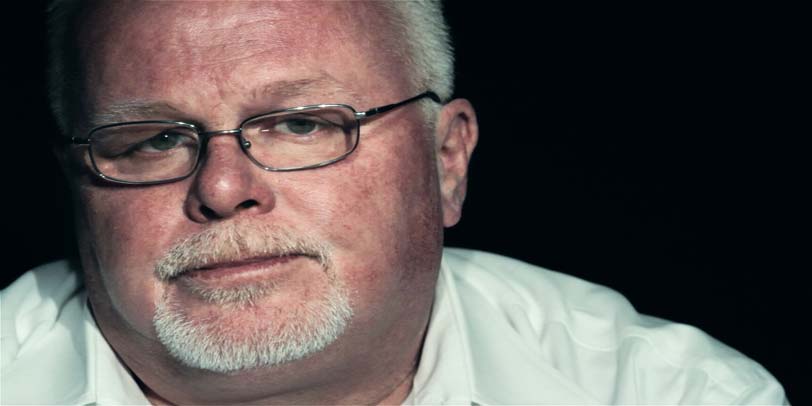The day President Bush signed the Innocence Protection Act into law was one of the proudest days of my life. The law, part of the Justice for All Act of 2004, included a new program named after me: the Kirk Bloodsworth Post-Conviction DNA Testing Program.
The program provides federal grants to states to conduct DNA testing that can exonerate the innocent and help identify the truly guilty. At the time, the program’s creation seemed a fitting end to a terrible chapter in my life, my 20-year struggle to prove my innocence after being convicted and sentenced to die for the brutal rape and murder of Dawn Hamilton, a 9-year-old girl I had never met.
Given my life experience, however, I should have known that the struggle for justice never ends. Without adequate funding and the proper implementation, a law on the books is just words on paper, even if the words come from Congress. And that’s how this Administration and its Department of Justice are treating the Bloodsworth Post-Conviction DNA program.
To date, Congress has appropriated nearly $14 million for the Bloodsworth program. Yet DoJ has yet to approve a single grant application or send the first dollar to states requesting the funding.
Zero. Zip. Zilch. Nada.
Today I’ll be at a Senate Judiciary Committee hearing where Justice Department officials will try to explain away their failure to carry out this critical program. Based on the history of the IPA, however, it’s clear that DoJ’s failure is no accident. The department has been against this program from the beginning. They opposed it when the House passed the legislation by the resounding vote of 393 to 14. They opposed it when it passed the Senate. And they opposed it when it was signed into law.
Unable to stop the law from being enacted, DoJ is now holding the program’s funding hostage and denying people with claims of innocence the chance to prove it.
It’s simply inexcusable.
Post-conviction DNA testing is a powerful means for ensuring public safety. It has not only led to the exoneration of over 200 wrongfully convicted individuals, it has also confirmed many a suspect’s guilt. When states are denied funding for post-conviction DNA testing, they are being denied the truth.
My life is proof of the injustice that can happen when our criminal justice system makes mistakes and the power of DNA testing to enable those mistakes to be corrected. After my arrest and conviction in 1984, I waited 8 years, 11 months and 19 days in prison, including two years on Maryland’s death row, before DNA testing proved my innocence. Then I waited another 10 years for the prosecution to run the DNA profile of the perpetrator in state and federal databases to find out that the real rapist and murderer was a man on my cell block who was in prison for another assault.
Quite simply, had it not been for DNA testing, I would have died an innocent man in prison.
Mistakes in the criminal justice system are not new. The organization I work for, The Justice Project, has been studying the leading factors of wrongful convictions and advocating for meaningful reform to prevent further miscarriages of justice. Post-conviction DNA testing offers the unique opportunity to correct the mistakes of our criminal justice system while helping it to become more fair and reliable. With states being denied access to the appropriated millions for DNA testing, errors will likely go uncorrected and further mistakes are certain.
I don’t have all the answers to the problems facing our criminal justice system, but I do know that there are other cases like mine out there. I feel a personal responsibility to each state that has been denied this grant money for post-conviction DNA testing. As this program bears my name, I feel it is my obligation to ensure that it is funded and implemented as it was meant to be. No one should have to wait 20 years for justice.
The Department of Justice has the money and the guidance from Congress needed to make the Bloodsworth DNA testing program work. The time for excuses is over.
Kirk Noble Bloodsworth is the first person sentenced to death row in the United States to be exonerated by DNA evidence. He is the program officer of The Justice Project, a nonpartisan organization that works to address unfairness and inaccuracy in the criminal justice system, with a focus on the capital punishment system.

